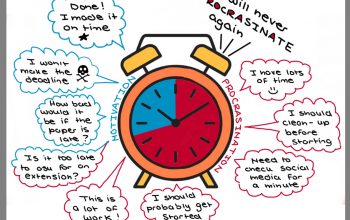Photo Credit: Emily Tung
Having a great professor doesn’t hurt, but don’t forget that a lot of the onus falls on the student.
Aditya Chugh, Contributor
If you wanted to brew a potion that could make anyone a good professor, you probably wouldn’t need a lot of ingredients. Add a potent tonic that transforms people into decent orators, some special seeds that make them well-organized and efficient at course coordination, and just a little magic dust that makes them more approachable to students.
Chances are that at least one of your classes at U of T (or any university, for that matter) has helped you realize that such a potion doesn’t exist — or you wouldn’t be dragging yourself to that “death by PowerPoint” lecture every week. The professor in front of you may be an expert on the subject matter, of course, but that expertise doesn’t necessarily translate well to your learning.
Is such a situation, then, the last straw — an average professor equals a lackluster educational experience?
I don’t think so. What trips us up the most is the expectation that a majority of our learning takes place in the lecture, and by that principle, the instructor is the primary medium for understanding the course content. In some sense, our educational experiences aren’t entirely dependent on the pedagogical talent of the professor. This talent is supplementary to (and can greatly augment) the learning we do on our own time, and the professor’s expertise of the subject is a resource that needs to be actively tapped into. Therefore, you can still gain a lot from a course even when the lectures aren’t “life-changing” or “transformative.” And realistically, they won’t be for most of your courses.
In this way, you can also dictate what you get out of the course. Finding out what about it will help you with your broader goals and specifically interests you — a hook, so to speak — will keep you coming back to the content and encourage you to ask questions about it. In the absence of an immediate connection with the professor, this diligent attitude toward the course can foster a productive academic relationship with your professor. Instead of just being a delivery system for new information, he or she is now a resource that can effectively guide your learning process. Think of it this way: for any class, you usually ponder over a plethora of different ideas for hours, as you try to make sense of them in an arguably short period of 4 months. The professor, on the other hand, has probably been doing this for years on end. With a personal stake in the course, you can leverage his or her experience to tailor your educational journey.
I should also say: I don’t think students are being spoon-fed or babied. Courses at U of T are quite challenging, and for most of us, they occupy a lion’s share of our time in any week. So a bad professor can make for a pretty miserable experience. But for the vast majority of average experiences, taking the first step towards making a connection with the professor might just make it a great one.




